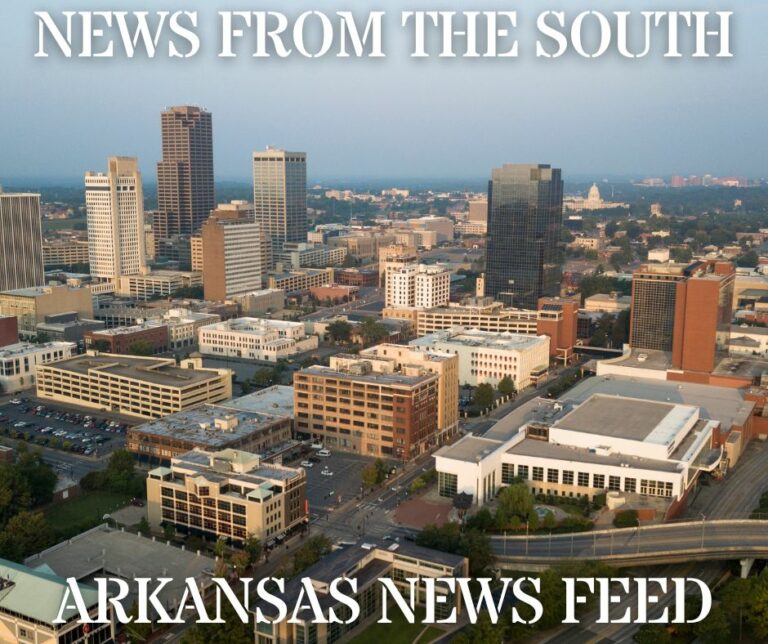News from the South - Kentucky News Feed
New tax cuts mostly favor the rich across states this year
by Kevin Hardy, Kentucky Lantern
May 5, 2025
Missouri Republicans may take their tax-cutting efforts to new heights this year as lawmakers consider exempting profits from the sale of stocks, bonds and real estate from state income taxes.
Part of a broader push to eliminate the state income tax altogether, legislation making its way through the Capitol would provide an unprecedented benefit to the wealthy by excluding capital gains, the long-term earnings from the sale of assets. If approved, tax experts say, the legislation would mark the first time a state with an income tax has eliminated capital gains tax.
The Republican sponsors say the move would make the state more attractive for businesses and families.
“This bill is intended to energize Missouri’s economy,” Republican Speaker Pro Tem Chad Perkins said upon introducing the measure.
But state Democrats — and even some of their GOP colleagues — have criticized the measure as being overly favorable to the wealthy. Most states’ tax systems already put a higher tax burden on lower-income households. That trend only accelerated in this year’s legislative sessions, worrying advocates who want to see the rich pay a larger share.
“It is so egregious in just how grossly concentrated the benefits of the [Missouri] proposal would go to the richest people in the state and shift the state’s tax system to really privilege the owners of wealth over people who are earning a regular paycheck,” said David Cooper, an analyst at the left-leaning think tank Economic Policy Institute.
The institute advocates for progressive state taxes — those that put the proportionately largest tax burdens on the highest earners. While Cooper advises against eliminating state income taxes, he said the Missouri move would be more harmful than eliminating the income tax outright.
“If you’re wiping away the income tax altogether, there’s at least some tax benefit going to lower-earning folks who are still paying income taxes,” he said. “If you’re just eliminating capital gains income taxes, you are just giving away money to the wealthiest people in the state, period.”
Some Democratic-led states, including Maryland and Washington, have moved to increase taxes on the wealthy this year. But several states — including Kansas, Kentucky and Mississippi — have made more regressive tax changes.
Jared Walczak, vice president of state projects at the conservative-leaning Tax Foundation, noted that states still prioritize progressive spending through social service programs aiding the most vulnerable residents.
He said states compete against each other for business and residents in much more immediate ways than the federal government competes against other nations.
“So states are very focused on the competitive advantages associated with a pro-growth tax regime,” he said, “and that has led to less of an emphasis in many states on achieving progressivity through the tax code.”
‘Generational change’ to taxes
While several states have enacted high-profile tax cuts this year, the momentum is actually slowing, Walczak said.
With booming economies and an influx of federal cash in recent years, conservative and liberal states alike passed significant tax cuts. Of the 43 states that have some sort of income tax, 28 have made rate reductions since 2021, Walczak said.
“In many states, lawmakers simply accomplished much of what they had set out to do,” he said.
Economic uncertainty and the prospect of reduced federal aid also have made many lawmakers more cautious this legislative season, he said.
But lawmakers in several states — including Oklahoma, South Carolina and West Virginia — have continued their march to eliminate state income taxes.
“Taxing people’s wages is bad because it undermines liberty,” Oklahoma state Sen. Dusty Deevers, a Republican, said this month in support of a proposed income tax cut, the Oklahoma Voice reported. “It undermines people’s freedoms. If government controls income, then it controls your life.”
Cutting services or raising taxes: State lawmakers weigh how to fill big budget gaps
This session, Kentucky Democratic Gov. Andy Beshear signed a bill cutting the state income tax rate from 4% to 3.5%. Republican lawmakers have been slashing rates for years with the ultimate aim of eliminating the income tax altogether, despite concerns that more reliance on sales tax would disproportionately burden the poor. To partially offset the income tax reduction, the legislature expanded sales taxes to more services in 2018.
And Republican lawmakers in Kansas overrode a veto from Democratic Gov. Laura Kelly to move away from the state’s graduated income tax toward a flat tax of 4% that will mostly benefit the highest earners.
Last month, Mississippi Republican Gov. Tate Reeves signed legislation granting another cut in the state income tax. Officials there aim to phase out the income tax altogether over the coming years with gradual rate reductions, which Reeves characterized as “a generational change” for the state.
The Mississippi law also reduces the sales tax on groceries and increases the gas tax. Though the governor is already celebrating the end of state income tax, the law provides for incremental reductions in the coming years only if the state hits certain revenue targets.
Republican state Rep. Trey Lamar, a legislative sponsor, said income taxes disincentivize work — a particular problem for the state with the nation’s lowest workforce participation rate.
“A tax on work is a tax on productivity,” he said.
The left-leaning Institute on Taxation and Economic Policy says the law will make the state’s tax system more inequitable. Its analysis found that when fully implemented, the top 1% of households, who have average annual incomes of $1.4 million, will receive an average cut of $41,420, or roughly 3% of their annual income. But the bottom 20% of earners, who have average annual incomes of $13,400, would realize a tax cut of just $42 per year.
Lamar noted the legislation did not increase sales taxes across the board. With average sales tax burdens already lower than neighboring states like Alabama, he said the income tax elimination will only help Mississippi workers.
“We need more people working,” he said. “So if helping the working man is somehow seen as regressive, then I’d have to say I don’t fully understand that.”
Blue and red states slash taxes despite warnings of hard times ahead
Walczak, of the Tax Foundation, said the state can afford the initial rate reduction. But it’s unclear whether state revenues will hit the targets needed — and whether lawmakers will reassess the aim of eliminating income taxes.
As one of the nation’s poorest states, Mississippi is heavily reliant on federal funding and would be particularly vulnerable to an economic downturn.
“There’s not a guarantee that the state could afford that in the future, and Mississippi does not have a large budget to begin with, so that would be harder than in most other states if the economy slid,” he said. “It does require a willingness on lawmakers’ parts to be honest with themselves if the economy changes and decide whether a pause might be necessary.”
An uneven tax burden
Economic uncertainty and slowing revenues have put many states into budget holes this year, forcing lawmakers to consider spending cuts or tax increases.
To close budget gaps, some conservative and liberal states have considered new or higher taxes on marijuana, tobacco and soda.
But some liberal-led states are looking to taxes more focused on the wealthy. In Rhode Island, Democratic Gov. Daniel McKee has proposed a 10% tax on digital advertising revenue.
In Washington state, lawmakers approved raising capital gains taxes and business taxes to close a looming deficit, though it’s unclear whether Democratic Gov. Bob Ferguson, who has voiced skepticism, will sign off on those measures.
Maryland lawmakers, facing a $3 billion deficit, recently approved $1.6 billion in new taxes and fees. That includes two new high-income tax brackets and a new 3% sales tax on information technology and data services.
Child tax credits, long a liberal priority, find favor in Republican states
Moves like those that ask more of the wealthy could make some state tax systems more progressive, said Aidan Davis, the state policy director at the Institute on Taxation and Economic Policy. But most state tax proposals approved this year have primarily benefited the highest earners.
That’s particularly concerning because most state systems already favor the wealthy. In 41 states, the top 1% of earners pay a lower effective tax rate than any other group, according to an institute study.
In Missouri, the fate of the first-of-its-kind capital gains tax elimination remains up in the air.
Though versions of the proposal have passed both chambers, there are differences between the Senate and House legislation. That means the bill could go back to conference committee for further negotiation or go on to Republican Gov. Mike Kehoe, who has identified capital gains among his tax cut priorities this year.
Missouri’s Department of Revenue estimated the exemption could cost $111 million per year. But an Institute on Taxation and Economic Policy analysis of IRS data projects the change could cost $600 million or more.
If approved, the top 5% of Missouri households — those making more than $273,000 per year — will receive more than 80% of the benefit from capital gains exemption, Davis said.
“Doing so would let wealthy people collect tax-free passive income while you’re continuing to tax middle class workers and people with savings,” Davis said. “It’s just a really extreme proposal.”
Stateline reporter Kevin Hardy can be reached at khardy@stateline.org.
Stateline is part of States Newsroom, a nonprofit news network supported by grants and a coalition of donors as a 501c(3) public charity. Stateline maintains editorial independence. Contact Editor Scott S. Greenberger for questions: info@stateline.org.
Kentucky Lantern is part of States Newsroom, a nonprofit news network supported by grants and a coalition of donors as a 501c(3) public charity. Kentucky Lantern maintains editorial independence. Contact Editor Jamie Lucke for questions: info@kentuckylantern.com.
The post New tax cuts mostly favor the rich across states this year appeared first on kentuckylantern.com
Note: The following A.I. based commentary is not part of the original article, reproduced above, but is offered in the hopes that it will promote greater media literacy and critical thinking, by making any potential bias more visible to the reader –Staff Editor.
Political Bias Rating: Center-Left
The content presents detailed coverage of tax policy debates, highlighting criticisms from left-leaning think tanks and Democratic officials about the disproportionate benefits of capital gains tax cuts for the wealthy. While it includes conservative perspectives advocating for tax cuts as pro-growth measures and economic incentives, the framing leans toward the concerns of economic inequality and progressive taxation. This balance reflects a center-left bias as it critiques right-leaning tax proposals but maintains a tone of journalistic fairness by including multiple viewpoints.
News from the South - Kentucky News Feed
Hot temperatures continue for holiday weekend
SUMMARY: Hot temperatures persist through the holiday weekend, with highs ranging from 92 to 95 degrees and increasing humidity making it feel close to 100 degrees. Pools are expected to stay busy as dry conditions continue with minimal rain chances Sunday. A cold front arrives Monday, bringing scattered showers and thunderstorms, which will taper off by Tuesday, though isolated storms may linger midweek. Tropical Depression Three is developing near the South Carolina coast, potentially becoming Tropical Storm Chantelle by Saturday. Louisville saw a unique Viking cruise ship visit, diverted due to high Mississippi River levels. Despite the heat, dry weather favors 4th of July fireworks celebrations.
WLKY meteorologist Eric Zernich’s Friday evening forecast
Subscribe to WLKY on YouTube now for more: http://bit.ly/1e5KyMO
Get more Louisville news: http://www.wlky.com
Like us: http://www.facebook.com/wlkynews
Follow us: http://twitter.com/WLKY
Instagram: https://www.instagram.com/wlky/
News from the South - Kentucky News Feed
Hot and dry weather through most of the holiday weekend
SUMMARY: Independence Day in Central and Eastern Kentucky featured pleasant weather with abundant sunshine, highs in the upper 80s to low 90s, and low humidity making it comfortable. Evening fireworks were clear and calm. The weekend will stay hot, with Saturday highs in the low to mid-90s, dry and sunny, but humidity will rise Sunday as southerly winds return moisture. A stray late-day storm is possible Sunday, especially in the Bluegrass region, as a cold front approaches. Early next week, unsettled weather will bring scattered showers and thunderstorms, some strong with gusty winds and heavy rain. Humidity remains high through midweek.
The post Hot and dry weather through most of the holiday weekend appeared first on www.wtvq.com
News from the South - Kentucky News Feed
What’s next for Misty Noel after she serves her prison sentence?
SUMMARY: Misty Noel, sentenced for crimes orchestrated by her estranged husband Jamie, says she was unaware of the illegal activities but accepts responsibility for not asking more questions. She intends to serve her time fully and focus on healing herself and supporting her children after release. Her daughter Casey, who pled guilty to theft and tax evasion, has completed her sentence and is on probation, expecting her first child. Misty hopes Casey will learn from her mistakes and be a better mother. The family plans to stay in Southern Indiana to rebuild and live as normal citizens.
What’s next for Misty Noel after she serves her prison sentence?
Subscribe to WLKY on YouTube now for more: http://bit.ly/1e5KyMO
Get more Louisville news: http://www.wlky.com
Like us: http://www.facebook.com/wlkynews
Follow us: http://twitter.com/WLKY
Instagram: https://www.instagram.com/wlky/
-
News from the South - Louisiana News Feed7 days ago
Water company hiked sewage rates in Lafayette to state’s highest
-
The Center Square6 days ago
U.S. Senate prepares for passage of One Big Beautiful Bill Act | National
-
Mississippi Today5 days ago
Feds unfreeze $137 million in Mississippi education money
-
News from the South - Tennessee News Feed7 days ago
“Choose how you love:” Nashville Pride 2025
-
News from the South - Arkansas News Feed7 days ago
Congress unlikely to enact ‘absolutely devastating’ Trump proposal to slash Pell Grants
-
News from the South - Arkansas News Feed6 days ago
Thousands celebrate pride, progress at the 2025 NWA Pride Parade
-
Local News6 days ago
Mississippi airports working to complete projects
-
News from the South - Arkansas News Feed6 days ago
Beyoncé handles car tilting in air during Houston show










































